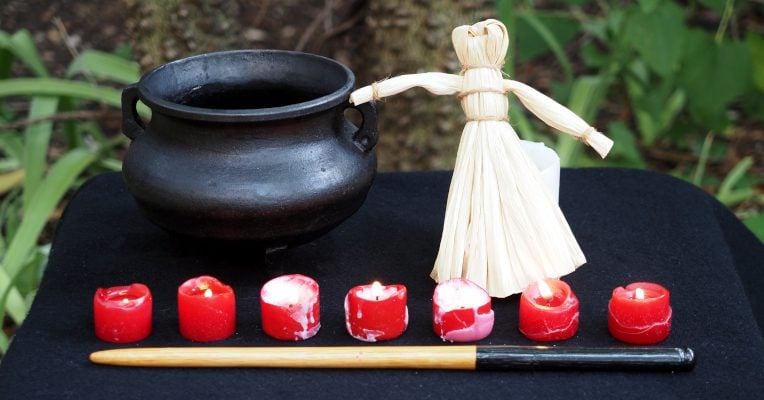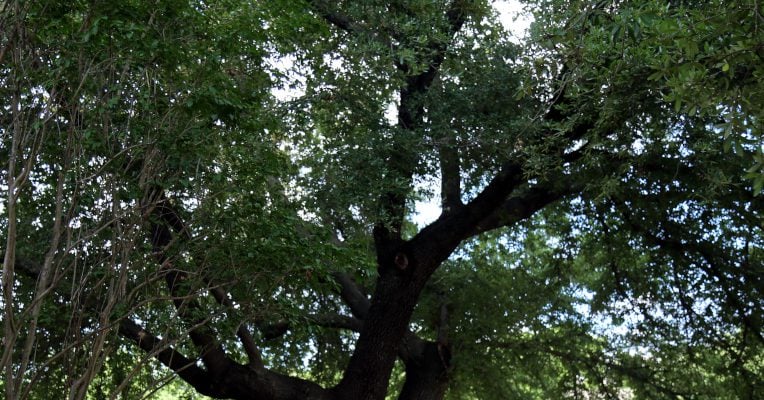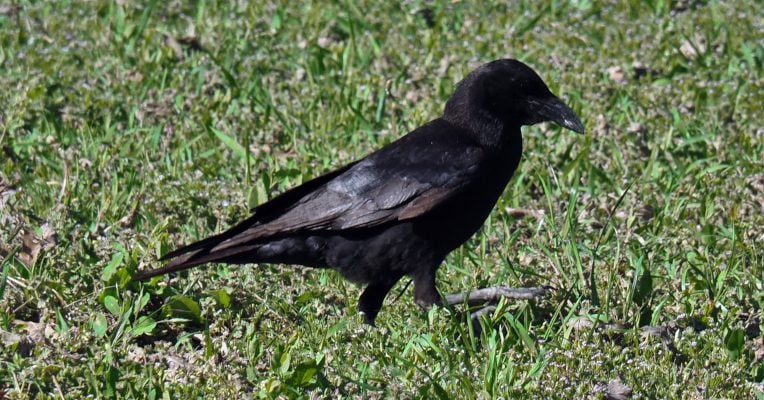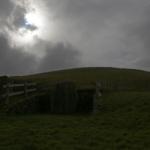I need to pause answering questions from Conversations Under the Oaks to address something that’s come up in social media yet again. Because gatekeeping and people watering down powerful traditions have made me angry, yet again.
For those of you who want to jump straight to the conclusion, here it is:
A witch is a person who practices witchcraft, as they understand it.
You need no one’s permission, no one’s blessing, no one’s investiture to call yourself a witch and to claim the title with power and pride. You need not match anyone’s list of “signs you might be a witch.” And you certainly don’t have to begin by figuring out what “type” of witch you are.
Yes, there are exceptions to this rule – there are exceptions to every rule. No, witchcraft isn’t anything you want it to be. It’s a very broad tradition, but it still has boundaries… though boundaries that are best seen as guidelines for more effective practice, not as gates to keep out those some deem unworthy.
What’s most important right now is that if you want to be a witch, you need no one’s approval – formal or informal – to be one and to call yourself one.
The context of this post: unhelpful social media
This matter comes up periodically. I’ve been writing about it at least since The Aesthetic of Witchcraft and the Return of Real Magic almost five years ago. Here’s what set it off this time – and it wasn’t even WitchTok.
First, this Facebook meme titled “11 signs you were born as a witch.” It lists things like “you hate crowds” and “you like nature.” Modern Witch podcast host and author Devin Hunter said “this basically describes people with ADHD.” My thoughts on memes like this can be summed up in this post titled 187 Signs You’re Trying To Avoid Doing Your Own Spiritual Work. These lists and quizzes can be fun, but real magic and spirituality are far more complicated than this.
Then I came across this episode of the Southern Fried Witch podcast where host Seba O’Kiley addressed Policing the Identity of “Witch”. It’s well worth your time to listen to the whole thing, but Seba summarized it well with this:
While there is some contention out there in the Witch world that the designation of “Witch” is not to be self-awarded, I contend that this is, well, unmitigated hogwash.
Needless to say, I completely agree.
And then there’s this piece on Cosmopolitan titled FYI: There Are Many Types of Witches. It lists 18 types of witches, including solitary witch, crystal witch, and cosmic witch. It’s harmless as it goes (and yes, I know I’m not the target audience for Cosmo) but in any field, specialization is something you do after you learn the basics – after you get really good at them.
These issues come up over and over again, and so those of us who care about such things have to address them over and over again.
Why should you listen to me, anyway?
As I usually state when I’m writing about witchcraft, I do not call myself a witch. I’m a Druid, a priest, a polytheist – adding another title to the list seems unnecessary.
But my practice is very witchcraft-adjacent – the magic I do is indistinguishable from the magic witches do. Many of my friends, co-religionists, and fellow practitioners are witches. I’ve studied witchcraft, both in a hands-on, operative magic way and also in a reflective, religious studies way. I meet my own definition of “witch” and I may claim the title someday. Or I may not.
Here on this blog my witchcraft credentials are less important than the accuracy and helpfulness of what I have to say. As with everything I write, if it makes sense to you and it’s helpful to you, then read it and see where it takes you. And if it doesn’t, go read something else.
The legacy of witchcraft
Throughout most of history, a witch was something no one claimed to be. The anthropological definition of a witch is a malefic magic user – someone who uses non-ordinary methods to harm others. We blame Christianity for its persecution of witches (most of whom were never witches in any sense of the term) and rightly so. But the pre-Christian Romans prescribed the death penalty for people who worked harmful magic. There are still places in the world where people are killed – sometimes legally – because they’re believed to be witches.
There have always been people with a gift for healing, for seeing the future, for communing with spirits. They were called shamans, wise women, cunningmen, and such – not witches. If things went badly they might be accused of witchcraft – especially if they were caught in the middle of an ethnic or religious conflict. That was never a good thing.
That all changed with Margaret Murray. Her books The Witch-Cult in Western Europe (1921) and The God of the Witches (1931) promoted the idea that the people killed in the medieval witch trials were practicing the remnants of an ancient Goddess religion. Her history was wrong, but her mythology was perfectly timed – it was something people desperately wanted to be true, and so they acted as though it was true. Now a witch was something good, especially for women struggling to gain equality with men.
Witches are people who do witchcraft
Language is not fixed – the meaning of words changes over time as people begin to use them in different ways. That annoys those who don’t want to have to deal with the change, but it doesn’t stop the change from happening. Today “witch” means more than “malefic magic user” – in many cases it means something very different.
But that language change doesn’t erase the legacy of witchcraft. Witchcraft may be healing, but it is also hexing. It may be a closeness to Nature, but it’s also using the elements of Nature for the witch’s own purposes. It may be a familiarity with spirits, but it’s never the officially sanctioned practices of church and state.
Here’s what’s relevant to this post: nothing in the legacy of witchcraft requires the approval of elders, leaders, or anyone else. Witchcraft groups and organizations may have admission requirements (though whether any of them existed prior to the 20th century is highly uncertain), but none of them own the title of “witch.”
Witches have always been people who did witchcraft, however they defined it. And they still are today.
For some, witchcraft is an orientation
Now we need to get into some nuance.
Witches are people who practice witchcraft. Who can practice witchcraft?
The simple answer is “anyone.” Want to be a witch? Start stirring a cauldron and casting spells. Congratulations – now you’re a witch.
Anyone can do it. But working magic comes easier to some than to others. Like the ability to run fast, jump high, or play an instrument well, natural ability for magic is not evenly distributed throughout the population. Study and practice can turn almost all of us into competent magicians. But for some, it comes very easy.
And also, some are called to do it. Some are so fascinated, so intrigued, so interested in magic and witchcraft that they can’t not do it – even those living in places and times where doing so was or is exceedingly dangerous.
In 2018 Heron Michelle wrote a very good piece titled Witchery as an Orientation and Sacred Mission. She begins with what we’ve already discussed here:
I consider Witchcraft to be a vocation with a set of skills and tools that are available to anyone, regardless of their spiritual inclination. All that is required is that you believe that magick is possible. After that, the mechanics can work for anyone.
Then she goes on to say:
When I tried to ignore my inner witching self, hide my interests and abilities, and AVOID my calling, I was a miserable wreck. I was spiritually, intellectually, socially, and emotionally starving. I felt like a fraud.
She is a witch, and not doing witchcraft goes against her nature. Some people are just born this way.
Many paths to the Craft
So when someone says “being a witch isn’t something you do, it’s something you are” I understand. That’s certainly true for some.
The problem is that some beginners read that and assume that the only way to be a witch is to be born a witch – an idea that much of our popular fiction reinforces. And then we get listicles that give us signs that we might be a witch that are so vague they apply to almost anyone.
Which, if you think about it, isn’t wrong, even if it is based on faulty reasoning.
Some people are born with an orientation toward magic and witchcraft. Some develop a strong interest in it, either at an early age or later in life. Some are called to it by Gods or other spirits.
And some choose the path of witchcraft for themselves.
These approaches are all not the same, but they are all are equally valid.
Identities are built by actions
Can I be honest for a minute? Some people who call themselves witches aren’t really interested in practicing witchcraft. They’re looking for an identity, something to tell the world (and themselves) who and what they are. Many of them are young women who adopt the archetype of the witch as a way to empower themselves in a world that is unwelcoming to them, sometimes violently so. If they find strength and comfort – and perhaps, inspiration – in that identity, good for them. It is neither my place nor my intent to tell them they’re not a witch.
It is my place and my intent to tell them – and everyone else – that while there is power in adopting an identity, there is more power in the actions associated with that identity.
Some people just like to play gatekeeper. But another reason these issues keep coming up is that new witches are often uncertain about their practice. Am I doing it right? Have I learned enough? Is my magic strong enough? Am I really a witch?
If that’s you, I want to reassure you that if you’re practicing witchcraft at any level of skill and competency, then yes, you’re a witch.
I also know from experience that reassurances from other people only go so far.
But when you do something over and over again, your skills grow – and so does your confidence. You know you can do it because you’ve already done it. Eventually it stops being a list of things to do and starts being what you do.
And then it becomes who you are.
This is how you build an identity: with consistent action over time. Practice witchcraft for long enough and you won’t need to ask “am I a witch?” You’ll know you are.
Why this is important
I can’t stand people letting their self-importance get in the way of those trying to learn and do something that’s meaningful and important to them. But beyond that, it’s pretty simple: we need more witches.
In the aftermath of the Dobbs decision, Heather Greene wrote How to make a thousand witches with one Supreme Court decision. In it she said “magic has always been, in lore and in life, a tool of the oppressed.”
We must use all the tools at our disposal: political tools, financial tools, educational tools – and magical tools. Not just to restore reproductive rights – important as that is – but to deal with all the aspects of these “interesting times” in which we live. We need people empowered not just to survive but to thrive. Not just to make it through but to make the world a better place.
Witchcraft isn’t the only way to do this. But for some people, it’s the best way – the most effective way.
Practice your witchcraft with the confidence of the witch you are.




















